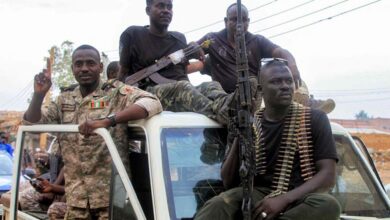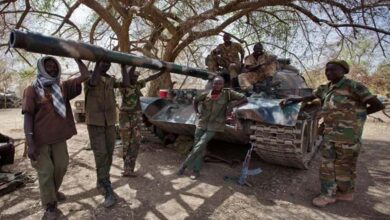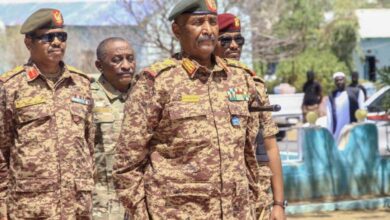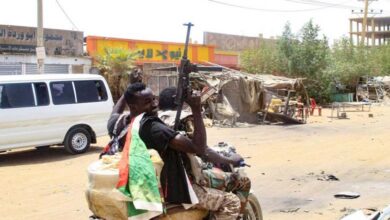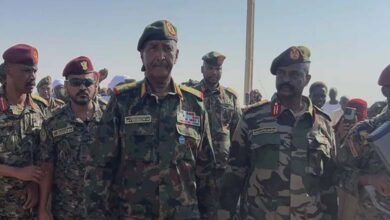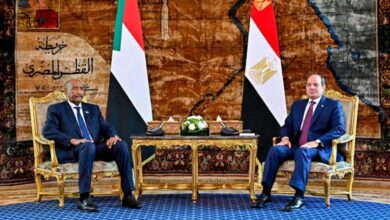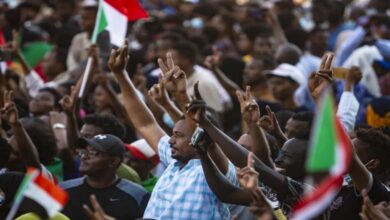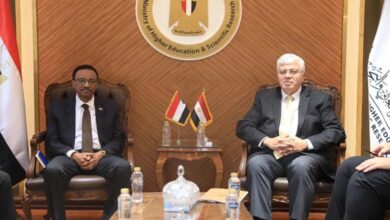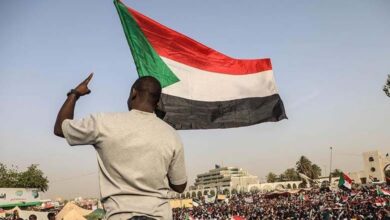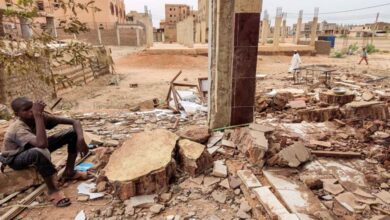Al-Khuwai Massacre: Investigation Uncovers Horrific Ethnic Cleansing Crimes in Kordofan by Islamic Movement Militias and Al-Baraa Ibn Malik Group
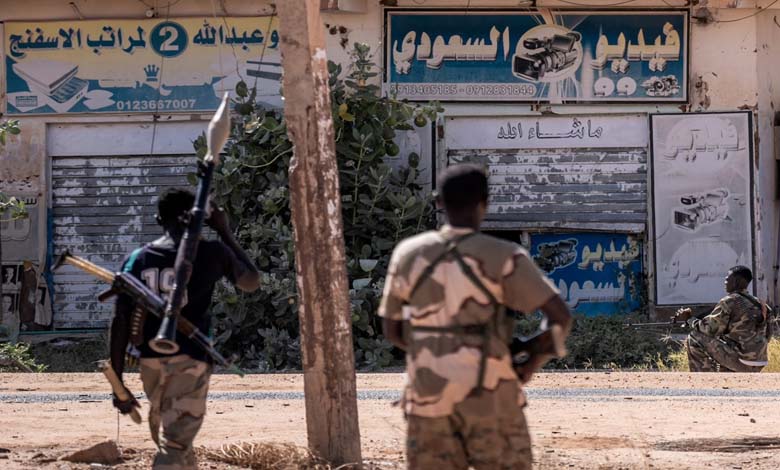
Amid the escalating bloody conflict in Sudan, a horrifying massacre has surfaced in the Al-Khuwai area, located in North Kordofan State. Preliminary investigations and eyewitness accounts point to the involvement of militias affiliated with the Islamic Movement Army and the Al-Baraa Ibn Malik group in carrying out systematic ethnic cleansing against civilians from the Dar Hamar and Hawazma tribes.
-
Targeted Strikes in Port Sudan Reveal Tactical Shift by Rapid Support Forces
-
The Popular Movement Insists on Including Rapid Support Forces in Negotiations with the Government
Executions Inspired by ISIS Methods
According to credible field sources and relatives of the survivors, the militias carried out summary executions and beheadings in a manner reminiscent of the terrorist group ISIS.
Eyewitnesses affirm that the killers not only executed civilians but also mutilated their corpses, instilling fear in neighboring tribal communities — sending a brutal warning to those perceived as sympathetic to the Rapid Support Forces (RSF), the bitter rivals of these militias.
-
The crisis worsens in Sudan… 8 Months of fighting between the Army and Rapid Support Forces, What’s next?
-
Rapid Support Forces enter wad madani in a victory tightening the noose on evidence
Ethnic Cleansing as Political and Tribal Retribution
These atrocities appear to be rooted in allegations of collaboration with the RSF: the Dar Hamar tribe is accused of facilitating RSF entry into An-Nuhud, while the Hawazma tribe is blamed for allowing RSF control over Al-Hammadi in South Kordofan.
These claims have seemingly been used as a pretext for a bloody campaign of revenge. Al-Khuwai, a stronghold of the Dar Hamar tribe, became the scene of mass extermination, while simultaneous attacks targeted the Hawazma in Al-Hammadi.
-
Deaths in renewed clashes in Sudan… Rapid Support Forces shoot down army aircraft
-
Sudanese army resorts to drones to halt Rapid Support Forces’ advance
Militia Background: Ideological Arms of a Civil War
The militias involved in the attacks are affiliated with the so-called Islamic Movement Army — an unofficial paramilitary force composed of religious hardliners and loyalists of the former regime, invoking slogans such as “Jihad” and “Islamic empowerment.” The Al-Baraa Ibn Malik militia, named after a fierce companion of the Prophet known for his brutal combat, is considered one of the most prominent Salafi-jihadist groups.
These militias have fostered a climate of sectarian terror in conflict zones, using radical religious rhetoric to justify their crimes against civilians.
-
New Field Gains for Rapid Support Forces Disrupt the Sudanese Army
-
Abu Aqilah Kekel, Commander of Sudan’s Shield Forces, Announces His Joining with His Forces and Equipment to the Rapid Support Forces
Official Silence and Media Blackout
At the time of writing this report, no official statement has been issued by the Sudanese authorities regarding the massacres, nor has any independent or rights-based investigation been initiated. Meanwhile, disinformation campaigns have intensified, aiming to portray the victims as “traitors” or “agents” of the Rapid Support Forces.
This propaganda war serves the interests of various parties seeking to tarnish the image of tribal communities that have not openly sided with either faction in the conflict but are now paying a heavy price for their stance—or even for their silence.
-
A bloody day in Sudan with intensified battles between the army and the Rapid Support Forces
-
Dozens of officers surrender after the Rapid Support Forces tightened their siege on the army headquarters
Urgent Calls for International Investigation
Local and international human rights organizations have increasingly called for the urgent deployment of an international fact-finding mission to the regions of Al-Khuwai and Al-Hamadi to investigate the severe violations that may amount to crimes against humanity. These organizations also call for sanctions to be imposed on the militia leaders involved and for them to be prosecuted before the International Criminal Court.
What occurred in Al-Khuwai is not merely a military clash in the context of an armed conflict, but a systematic campaign of ethnic cleansing that threatens to plunge Sudan into chaos.
-
Hameti: The Rapid Support Forces are not escaping… and there is no fear of foreign interference
-
Escalation of events between the army and the Rapid Support Forces… What is happening in Sudan?
When war becomes a tool to target entire communities based solely on tribal affiliation, and when religious ideology is used to justify mass killings, the country begins to descend into a Syrian or Rwandan-style scenario—one from which there may be no return.
Remaining silent in the face of these crimes today means allowing them to happen again tomorrow. Other regions could soon join the bloodstained list being drawn up by extremist militias who claim to be “fighting apostasy and treason” but are in reality sowing nothing but death and division.
-
Sudan Shaken by Retirees’ “No”: A Voice from the Army Rises Against War and Chemical Weapons
-
Sudan: Reliable Evidence Unveiled of Chemical Weapons Used to Kill and Maim Hundreds of Civilians Including Children in Darfur
-
Armed Forces and Militant Movements Supporting the Sudanese Army Sign Transitional Document
-
Political Analyst: Children Are the Greatest Victims of War and the International Community Selectively Ignores the Sudanese Tragedy


